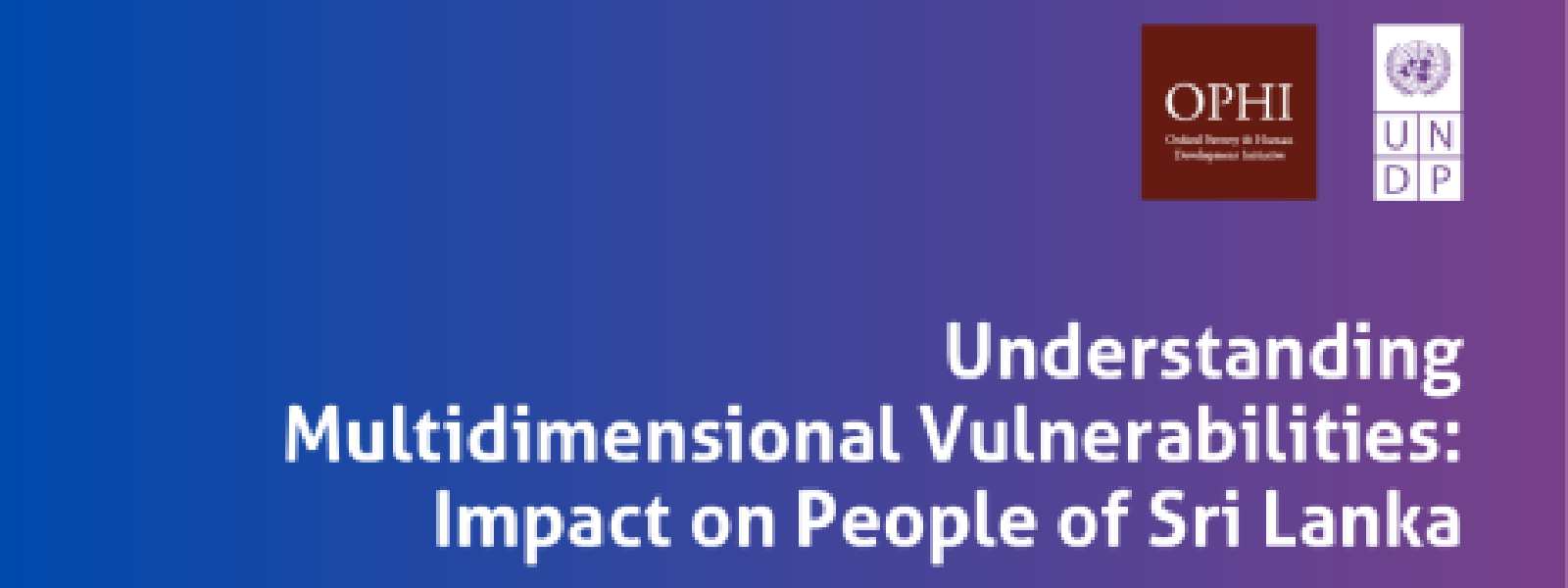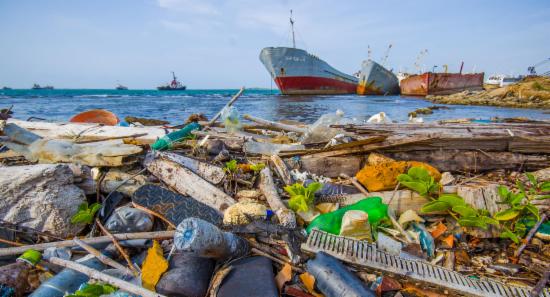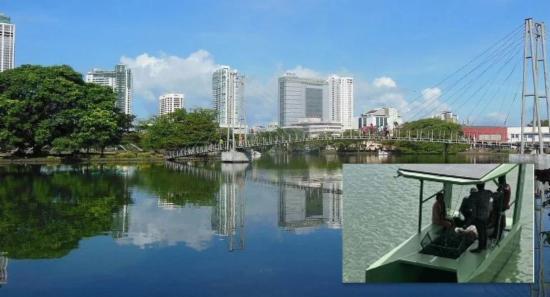.webp)

Vulnerabilities & Impact on People of Sri Lanka: Latest UNDP report
COLOMBO (News 1st); The United Nations Development Programme in Sri Lanka launched its latest report on vulnerability on Friday (1).
This report is titled "Understanding Multidimensional Vulnerabilities: Impact on People of Sri Lanka."
This report presents findings from the Multidimensional Vulnerability Index (MVI) derived from the National Citizen Survey 2022-2023 initiated by the United Nations Development Programme (UNDP) in Sri Lanka, which was administered with the objective of capturing a snapshot of vulnerabilities experienced by Sri Lankans during the economic downturn.
Debt, a lack of education, and the ability to adapt to disasters are factors that make most people feel vulnerable, said the new report, released today by the United Nations Development Programme (UNDP) and the University of Oxford’s Poverty and Human Development Initiative (OPHI).
Several districts, including Puttalam, Batticaloa, Mullaitivu, Kilinochchi, Ampara, Vavuniya, and Nuwara Eliya, exhibit multidimensional vulnerability, highlighting the need for focused interventions to address factors like disaster preparedness, debt relief, water source accessibility, and female education. Thus, a nuanced, well-designed and comprehensive policy approach is recommended to improve the wellbeing of these communities.
The MVI sheds light on the complexity of existing vulnerabilities – with overall results suggesting targeted efforts in areas like debt, disaster preparedness, water source accessibility, and female education, emphasizing the need for multisectoral engagement to enhance the well-being of vulnerable communities in Sri Lanka. Ensuring that such data is up-to-date and comprehensive is a crucial first step
in addressing these challenges and maintaining progress towards a more equal world.
The MVI for Sri Lanka is identified as the first ever vulnerability index using Citizen Science. However, this study is not without its limitations. The report acknowledges this and advocates for the inclusion of further criteria and inclusion of the MVI as part of National Data collection exercises.
The NCS was initiated by UNDP Sri Lanka, in collaboration with the Citra Innovation Lab and UNDP’s SURGE Data Hub, to capture a snapshot of vulnerabilities experienced by Sri Lankans as a result of the pandemic and the economic crisis.
The report makes several recommendations:
1. Leverage the MVI for long-term policy and programme interventions and decision making.
2. Strengthen the use of MVI and vulnerability indicators in social protection schemes.
3. Enhance resilience among Persons with Disabilities through inclusive and life cycle based social protection schemes
4. Design a sustainable approach to alleviate vulnerabilities of debt-burdened households.
5. Develop a comprehensive strategy to enhance preparedness for climate-induced disasters.
6. Build climate-resilient water systems that safeguard equitable access to water resources in the face of climate challenges.
7. Invest in expanding equitable access to quality education.
8. Establish systems and mechanisms to ensure effective use of MVIs.
Other Articles
Featured News





.png )
-810127_550x300.jpg)
-810121_550x300.jpg)
-810115_550x300.jpg)
-810109_550x300.jpg)






-809496_550x300.jpg)












.webp)






